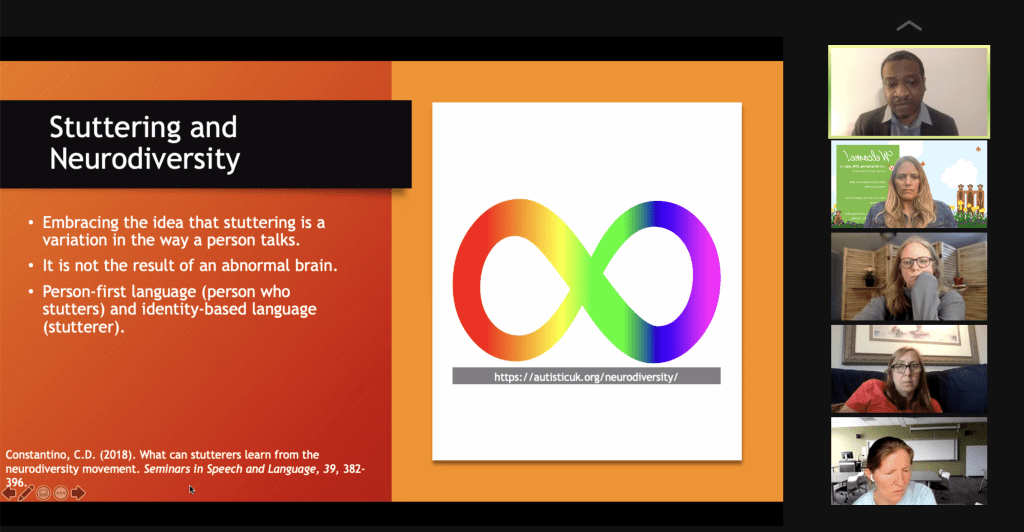Our final PD event this year was a game-changing evening with Dr. Derek Daniels from Wayne State University, who shared his expertise on Working with School-Age Children Who Stutter. Dr. Daniels emphasized a shift of focus for stuttering treatment, which approaches stuttering as a result of neurodiversity, not an abnormal brain. This was the first time I have learned about stuttering within the framework of neurodiversity – it was refreshing, inspiring, and just made sense.

We learned important and helpful strategies for assessing school-age students who stutter in a holistic and child-centered manner. Personally, this presentation was very insightful and practical for my everyday clinical work. Here are some of our takeaways from the evening:
- Stuttering therapy is a journey. Our goal is not to eliminate stuttering, or to “cure” a client that stutters. Rather, our role is to support our clients to help them reach their goals as communicators.
- Adverse impact is just as important as the intensity of stuttering. It’s fine to not qualify a kid if they are comfortable with their stuttering and don’t want therapy. Some people can have stuttering behaviors but not necessarily be adversely impacted or want help.
- Use self-rating scales in goals. This helps us know how effective therapy is for students from their perspective (the perspective that counts!). Dr. Daniels shared some great resources for therapy, tangible activities, and topics for conversation.
- Explore the client’s feelings towards their stuttering. Dr. Daniels gave concrete examples of activities (with references to the research) to target the social-emotional aspects of stuttering.
Dr. Daniels gave us perspective as a person who stutters as well as a clinician. He encouraged us as clinicians to listen to our clients and respond to their experiences. So much of what I have previously learned about stuttering has primarily focused on stuttering modification and fluency strategies, and I now feel equipped to address stuttering in a more client-centered approach.
The COVID-19 pandemic forced us to think outside the box this year for professional development, as it was no longer safe for us to gather together, share a meal, and listen to a presenter. That being said, we were able to attract speakers from all over the country to share their expertise with our group via Zoom. It’s been an interesting journey, to say the least, but we will always manage to find bright spots along the way! We got this.





